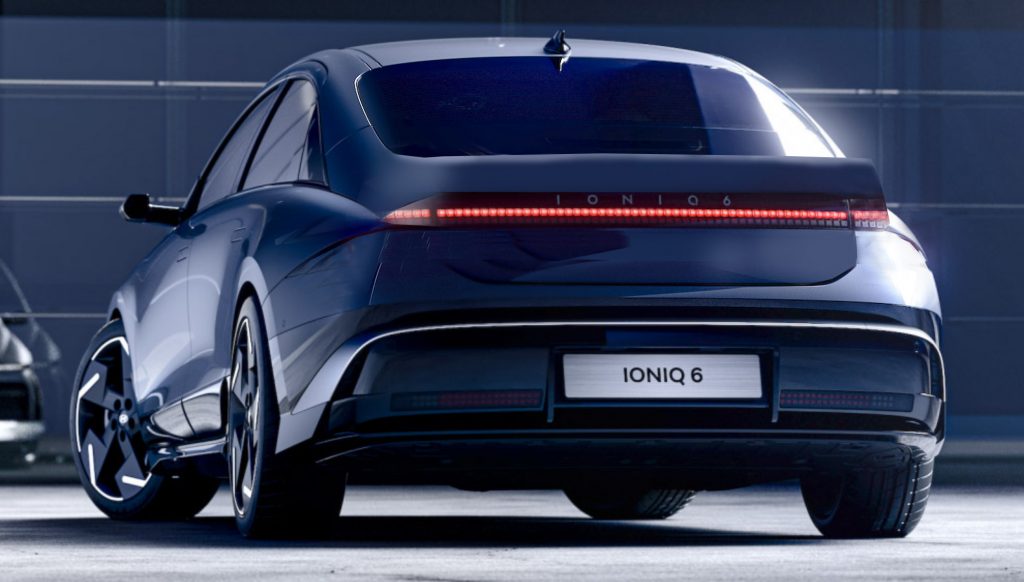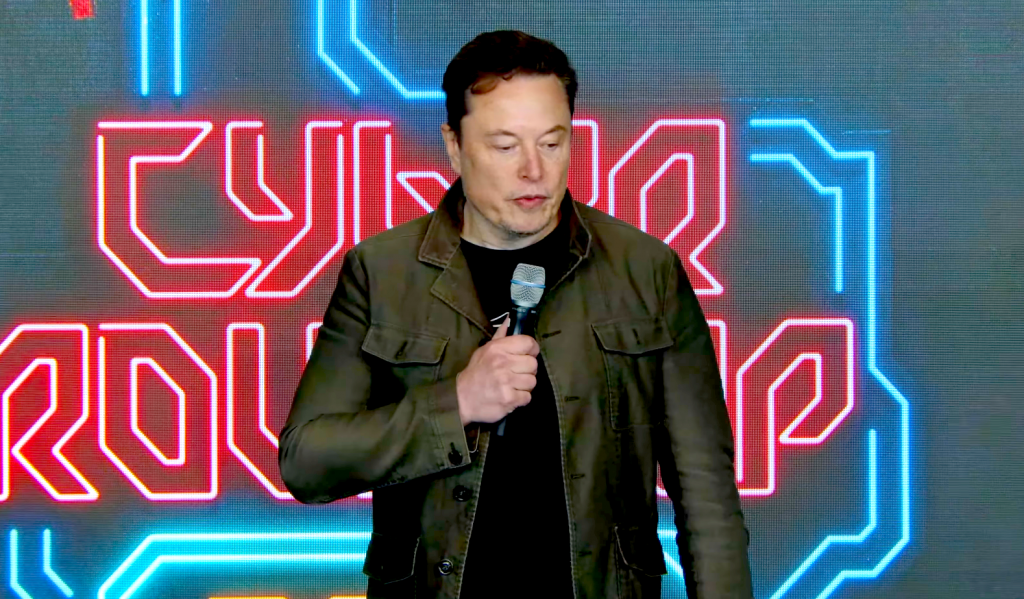Electric cars are not Beanie Babies or Labubus or whatever, although the hype cycle around them has felt as extreme at times. It turns out that EVs are a great solution for a lot of people, but without incentives, the market looks very different.
The topline number is that, based on the first half of the month, it looks like October EV sales are going to plummet by 43% to make up way less than 10% of the total market. That’s bad for EVs. That’s real bad. And now one analyst who will be familiar to Morning Dump readers says the quiet part out loud: At that market share, why even build them?
The most obvious answer is to be Tesla, which still makes a (much smaller) profit off of electric cars. It helps that its buyers are less price sensitive. Is the company about to lose its CEO?
Could this have been avoided if the market here had more affordable cars? Possibly; that seems to be happening in Europe. China has the cheapest EVs, although perhaps they have too many.
EV Sales Likely To Drop By More Than 40% In October

Somewhat predictably, with the loss of federal incentives, EV sales in the United States were destined to fall. It won’t be until later in November that we’ll have full registration data, but preliminary numbers from J.D. Power reportedly show a year-over-year drop of 43% is possible. More dramatically, EV share of the market is expected to plummet from nearly 13% of all new cars sold in September to maybe 5% this month.
With incentives for building battery factories, selling EVs, and even building chargers going away, there’s already less support for electrification. At the same time, the White House successfully rolled back CAFE regulation penalties and fought to remove the California waiver [Ed Note: The CARB thing is still in limbo. I’d be amazed if somehow what California says no longer matters. And more importantly, it’s hard to make decisions as an automaker with things like this teetering. -DT], meaning there’s not much of a reason to move in that direction from a regulatory standpoint.
At least, I think that’s what Karl Brauer is saying in this Automotive News article:
“It’s tough to know what the long-term market share of new EVs will be after only a few weeks without the incentive,” said Karl Brauer, executive analyst at iSeeCars.
The loss of the tax credit, along with relaxed federal emissions rules, has pushed automakers to focus on selling profitable gasoline and hybrid models and away from money-losing EVs, Brauer said.
“The stable percentage of new EV sales after everything settles down is no higher than 6 percent and likely 4 to 5 percent,” Brauer said. “Automakers aren’t going to have any incentive to build them, so they’ll only make them if they can earn at least a little profit.”
While Tesla’s share is declining, it still has a large chunk of that small piece of the total pie. When it comes to the next generation of EVs there’s only a couple of ways I think this can go, and it doesn’t involve every company producing a lot of $40-50k EVs.
- Someone will sell cheaper cars, though the volumes are maybe not there (Chevy Bolt, Tesla Model 3, Nissan Leaf, Whatever Ford Is Doing). This lack of volume will make cheap, new EVs harder to come by.
- Expensive luxury EVs for people who want them will continue to be the norm.
This is likely to squeeze out a lot of the market, which is kind of a bummer. Tesla’s high loyalty rate is a sign that once people drive EVs they tend to like them. Adoption is predicted to fall for a while, making that curve a lot slower.
In this new environment, Tesla seems poised to continue to do alright, and maybe GM will. Of course, Tesla has other issues.
Is Musk Going To Lose His $1 Trillion Pay Package?

Source: Tesla
Obviously, Tesla CEO Elon Musk would like for the passage of his $1 trillion pay package to go forward, if only so he can be in control of the robots.
Voting to approve the package is open and will continue for another week. Historically, Musk wins these votes easily, but there’s been some opposition to this current package from various sources, as CNBC reports:
Several groups have publicly opposed the pay package in recent days, with Institutional Shareholder Services, the biggest proxy advisory firm in the world, recommending against its “astronomical” value.
Last week, a group of unions and corporate watchdogs launched the Take Back Tesla website to oppose the pay package, noting Musk’s embracing of right-wing political movements and amplifying of conspiracy theories that have damaged the brand.
Musk lashed out at top proxy advisors ISS and Glass Lewis, calling them “corporate terrorists” on an earnings call with analysts last week.
I don’t know what will happen, I just know it’s interesting to see how hard Tesla is trying to whip votes in its favor. Does the company sense weakness?
Europe’s Car Sales Boosted By EVs, Hybrids

Overall, car registrations were up 0.9% year-over-year in September. This was led by a big jump in EV sales, with pure BEVs representing a full 16.1% of the market.
As Europe’s car industry association notes, though, hybrids are the even bigger winner:
Up until September 2025, battery-electric cars accounted for 16.1% of the EU market share, an increase from the low baseline of 13.1% in September 2024 YTD. Hybrid-electric car registrations continue to surge, capturing 34.7% of the market, remaining the preferred choice among EU consumers. Meanwhile, the combined market share of petrol and diesel cars fell to 37%, down from 46.8% over the same period in 2024.
The difference between our market and Europe’s market is that Europe has a lot more small, relatively lower price models. If only…
China Removes Electric Cars From Five-Year Plan

Electric cars have been a big part of previous “five-year plans” from China’s government, which has allowed billions of dollars in subsidies at all levels to flow to EV automakers.
No more, says Reuters:
China has omitted electric vehicles from its list of strategic industries in its five-year development plan for 2026-2030, marking their first exclusion in more than a decade, as the sector grapples with oversupply challenges.
That makes sense. While EVs are still extremely popular in China, the massive oversupply of vehicles has resulted in sales trickery and fraud, meaning that the industry doesn’t really need the support.
What I’m Listening To While Writing TMD
Anyone else stay up to watch the game last night? I went to bed at like 3 am, so it’s a late Morning Dump today. In honor of Freeman’s shot, here’s “Centerfield” by John Fogerty.
The Big Question
Which European or Chinese EV would you like to see for sale here (geopolitics aside)?
Top Photo: Ford









Renault 5 AKA Nissan Micra. Renault probably won’t return to the US market during my lifetime, but Nissan’s already entrenched and needs a hit. Since they wouldn’t be competing with Renault here, maybe they could manage to sell the Micra EV for less in the states? Even in just a single trim/version, and only a few colors, with nothing other than dealer-installed options? Whatever it takes to reach that mythical $25K small/affordable EV figure?
I’d buy a blue Micra, and sell off most of my other cars.
The only incentive to build EVs should be the market. I’m against the government having their finger on the scale of any market long term. I’m not against incentives to get an industry started, but if after 10 years an EV needs subsidies and government incentives to survive, it’s a product the market does not want, and not a viable business. If Tesla is such a great business, why do they still need tax and carbon credits to be financially viable.
EVs sucking up so much government money does two things, starves incentives from other potentially viable technologies like hydrogen and shifts tax burdens away from those who profit.
Tesla’s drive to whip up votes might be because of Delaware?
We need more reasonably priced plug in hybrids to bridge both the ideological and electrical infrastructure gap for the next 10-15yrs.
I would love a Zeekr 001 for sure (though my Mazda loyalty drives me toward the 6e), but what I’d really like to see is BYD and Tesla square off here. Let Americans decide who makes the better EV.
The 6e is a Chang Deepal L07 in disguise, it is a great car, but very few loyalty points given for that one.
Tesla and BYD square off in China already. You can tell how that’s going to go. But you’re right, how BYD does in the US tells us the limiting factor (price) and that Americans are ok with sending jobs overseas.